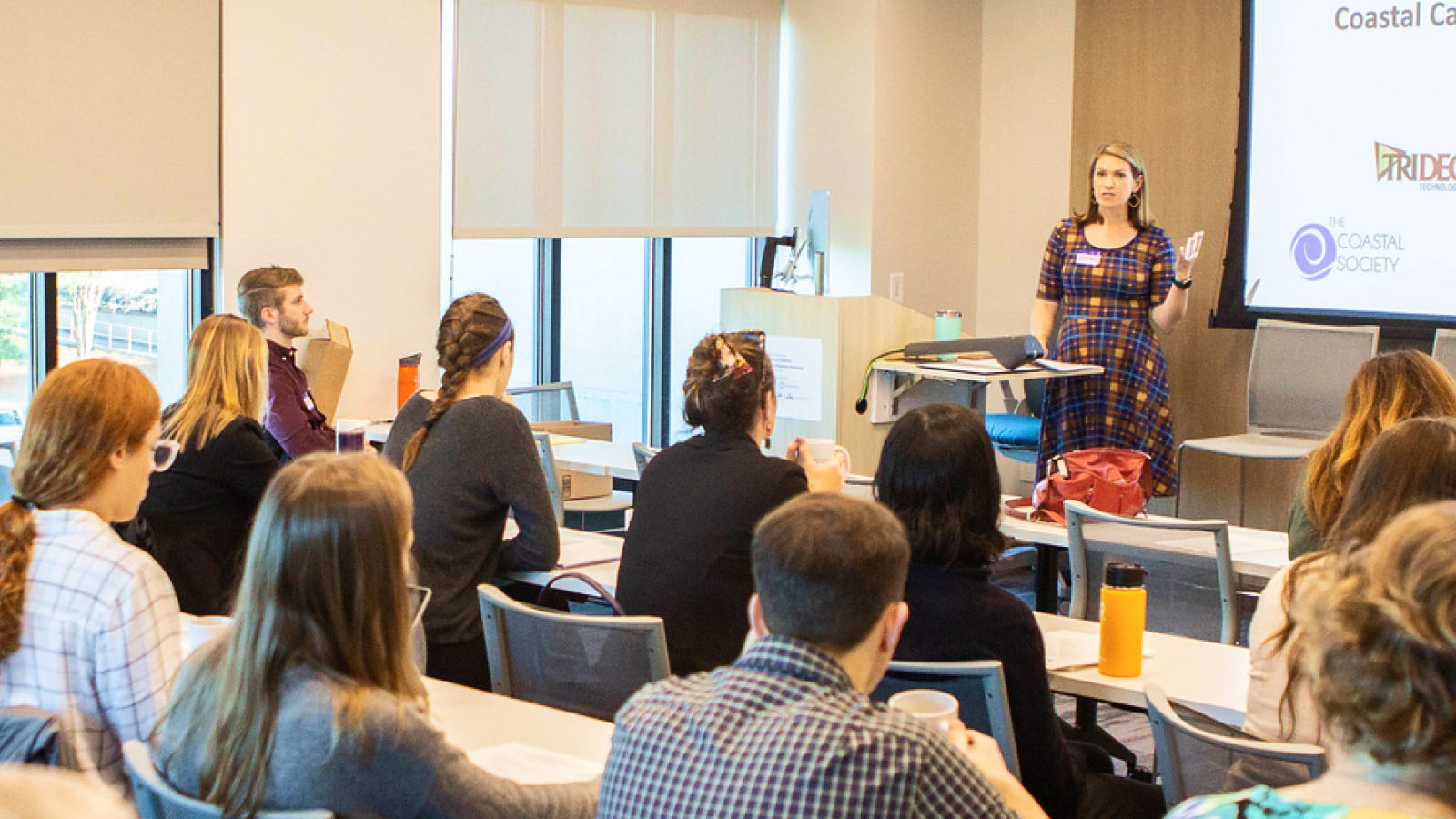Overview
The social sciences are a valuable but often overlooked element of coastal zone management. Issues from marsh restoration to flood mitigation all involve understanding critical human elements—knowledge, values, and attitudes—of the people who live, work, and play in these areas. Topics to choose from for this online course include Understanding Stakeholders, Conducting Interviews, Writing Effective Survey Questions, and Analyzing Qualitative Data.
The Office for Coastal Management also offers an instructor-led, onsite version of this course.
Details
Hosts of this training can customize their workshop by selecting one or more of the social science modules below that focus on various disciplines.
To host this virtual course, contact us at ocm.tms@noaa.gov.
Module 1: Understanding Stakeholders
This live, online module introduces the novice participant to prominent social science disciplines, important social science questions, and ways in which social science can be used to meaningfully and systematically engage stakeholders.
Learning Outcomes
- Recall the major social science disciplines and their applicability to coastal zone management
- Identify and incorporate behavioral considerations from the social sciences in defining a problem
- Conduct a stakeholder analysis
- Evaluate the strengths and limitations of different stakeholder engagement techniques
Duration: 2.5 hours
Module 2: Conducting Interviews
An interview is a conversation focused on an objective that uses a series of specific, targeted questions. This live, online module provides participants with the knowledge to create an “interview guide" and conduct effective interviews in multiple resource management settings.
Learning Outcomes- Recognize three types of interviews, as well as their purposes, strengths, and limitations
- Construct an interview guide using best practices for question construction and sequencing
- Design and conduct a mock interview that ensures all components are included
Duration: 2 hours
Module 3: Writing Effective Survey Questions
Surveys help inform community needs, preferences, knowledge, and values to make thoughtful, informed decisions. Unfortunately, because of their popularity, many people untrained in survey creation administer poorly designed surveys that yield questionable results. This live, online module serves to provide coastal managers with best practices to write more effective survey questions.
Learning Outcomes- Review and critique surveys to identify common mistakes in question design
- Incorporate 25 best practices when creating survey questions
- Identify ways to improve survey questions that yield desired data types
Duration: 1.5 hours
Module 4: Analyzing Qualitative Data
This live, online module provides participants with the knowledge and skills to analyze qualitative information from surveys, interviews, and focus groups.
Learning Outcomes- Describe key differences between qualitative and quantitative data types
- Identify and utilize basic inductive and deductive approaches in qualitative analysis
- Code, categorize, and sort data to effectively report your findings
Target audience: Coastal and natural resource managers who conduct applied social science research and community engagement activities in their work
Duration: 2.5 hours
Participant Requirements
- Internet connection
- Webcam
- Headset, or speakers and a microphone
- Access to Google Meet
- Training handouts accessible (preferably printed)
Professional Credit
American Institute of Certified Planners – 1 to 5 hours (depending on the number of modules attended)
Association of State Floodplain Managers – 1 to 5 hours (depending on the number of modules attended)
Virtual - Social Science Basics for Coastal Managers
- Host Information
- Where and When?
- Review
